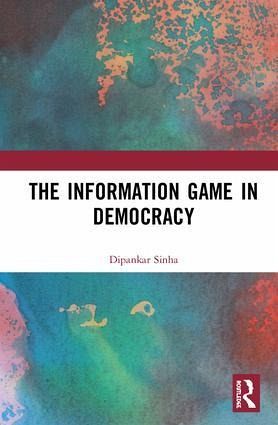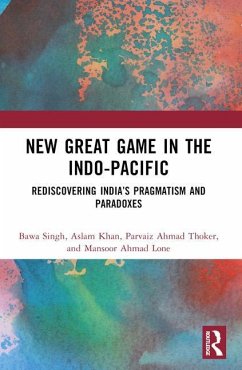
The Information Game in Democracy
Versandkostenfrei!
Versandfertig in 1-2 Wochen
167,99 €
inkl. MwSt.

PAYBACK Punkte
84 °P sammeln!
This book examines democracy and governance from the unconventional and largely under-researched vantage point of information. It looks at the exclusionary informational dynamics in democracy and analyses the role of information capitalism, new technology, virtual networks, cyberspace, and media. While emphasizing the foundational value of information as the 'source code' of modern societies, the book explains how it is strategically maneuvered in technologies of governance in so-called established and credible democracies. It studies the neutralization and subversion as well as the complex, n...
This book examines democracy and governance from the unconventional and largely under-researched vantage point of information. It looks at the exclusionary informational dynamics in democracy and analyses the role of information capitalism, new technology, virtual networks, cyberspace, and media. While emphasizing the foundational value of information as the 'source code' of modern societies, the book explains how it is strategically maneuvered in technologies of governance in so-called established and credible democracies. It studies the neutralization and subversion as well as the complex, nuanced and multidimensional act of othering of people.












